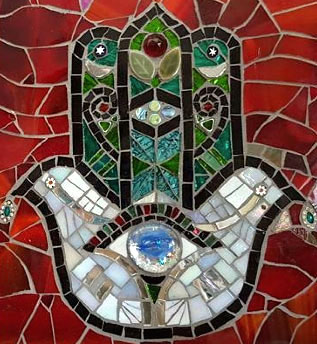By Andrew Kadi
A few days ago, I was on a flight from Canada to the U.S. sitting next to an African-American family. The husband, seated in front of me, appeared to be wearing a religious cap with a blue & white menorah on it.
The wife was sitting next to me with her child, who kept reaching for me. The mother was swiping her kid’s hand away and trying to put him to sleep, so I smiled at him but I didn’t engage further.
When she finally handed him off to her husband, I asked “How old?” She responded with his age, and I told her I knew she was trying to put him to sleep, so I didn’t want to get him worked up by playing with him.
With a surprised expression, she said “I thought you maybe just didn’t want to be bothered.” I chuckled. “Thank you, though,” she added. “Because I really need him to sleep.”
She started chatting with me and told me that they were en route back to the U.S. from Israel. I then mentioned to her that I’ve traveled there, as well. She told me that her husband wants the family to make aliyah.
My heart sank. Inside, I felt betrayed, angry, hurt…but I continued the conversation. I asked her questions about their trip to Israel. I disclosed to her that I’m Palestinian at some point, but she didn’t react.
We talked about religion and life in the U.S. I could tell she was new to Judaism (she mentioned being Reform), but we eventually refocused on their trip.
She tells me how much she likes falafel, and how beautiful the country is. My heart sank even further; I agree with her. Then things took a turn, as I mentioned that my mother is Palestinian and that our family faces a history of oppression in Israel. I added that there are over 50 Israeli laws that discriminate against Palestinians. She confessed that [as an African-American woman], people stared at them a lot while they were in Israel.
I then told her that, as a Palestinian, my mom can’t buy land in most of her own country, and she is not even allowed to live in certain towns because there are committees that can decide how many non-Jewish people can live there, and that unemployment is higher among my people there than it is outside of our country.
She told me of how she and her husband were mistreated when they tried to search for housing. She said, “Only after we said that we’re Jewish did they agree to show us homes.”
“And I told my husband,” she continued, “I’m not moving just so I can go back to living in 1950’s Alabama.”
There was a pause. And then we began to form a connection.
I explained that racism based on color is prevalent in Israel because the state was founded initially by Europeans who, despite being a minority at the time, were able to determine the rights of others living there, so that they became the majority. She said that she could tell.
I contrasted this with the racism based on ethnicity that’s enshrined in Israeli law. I acknowledged that some Palestinians are lighter-skinned, but explained that being Jewish in Israel is still a privilege (as evidenced by her real estate experience that she’d shared). I told her about my family’s experiences in Israel that led them to come to the U.S. She expressed shock as she realized that they were similar to things that she knew in the U.S.
I could see in her face that she had now become even more conflicted. She told me that her kids don’t want to make the move to Israel. They don’t like the food. They don’t feel at home there.
Mid-conversation, her baby began crying so loudly that she was forced to move. Her other daughter sat next to me, instead. We spoke briefly.
Later, as I got off the plane, we bumped into each other again, and she told me her name. “I’m Regina.” I told her mine. I wanted to stay in touch with them, but I still felt hurt. So I simply said, “Goodnight” to the whole family. I could see in their faces that they wanted to know what their mother and I had talked about.
Andrew Kadi is a Steering Committee member of the US Campaign for Palestinian Rights and blogger at the Electronic Intifada.
